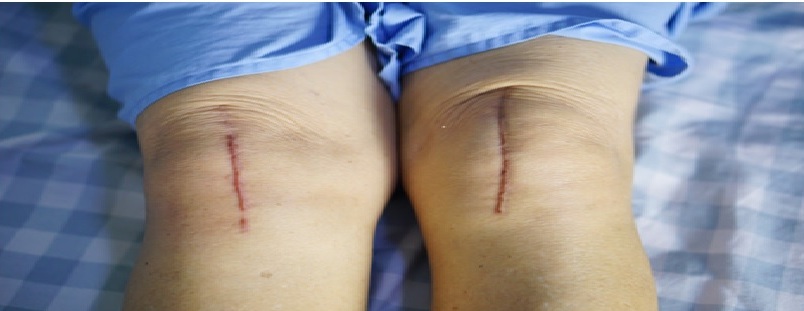
Joint replacement surgeries replace the damaged body parts or a joint with an artificial part. This procedure is being used by doctors for the last three decades and people have seen successful results. This form of surgery is done for replacing any of the damaged joints of hips, knees, shoulders, fingers, ankles or elbows . With the increasing number of expert orthopaedic surgeons like Dr L. Tomar, India is expected to conduct the highest number of joint replacement surgeries in the world by 2024. Despite the on-going success rate, it is important to note that there are both pros and cons after you undergo joint replacement surgery. If you are opting for a knee or a hip surgery, it is always best to lose some weight before getting it operated. A lighter body weight gets healed faster. Even if you are planning to go for it, here are some of the things that you can expect after joint replacement surgery.
Cost and Time Factor
Despite being a common surgery, this is expensive and in India, just the artificial part ranges anything between Rs 75,000 to Rs 1 lakh . This excludes the hospital expenses, doctor’s fee, hospital charges and cost of medicines. Other than this, depending on the urgency of the surgery, you might have to opt for a private hospital rather than waiting for your operation date in a government hospital (which can be anything between 9 months to a year). Thus, it is important to get health insurance in place before getting any surgery done.
However, this cost is significantly lower than the cost of joint replacement surgeries in the western or other countries. Medical tourists coming to India can actually save over 70 per cent of the money even after including travel and stay expenditure.
The surgery is usually done in a single sitting with a procedure lasting for around 2 to 3 hours and unless there are any post-surgery complications, the patients need to stay in the hospital only for 3 to 4 days. But, for instance, both the knees have to be operated, then the doctor will advise the patient for surgery in two sittings. Hence, for medical tourists, this would mean visiting the country twice as the second surgery is planned after a few months.
Post-surgery maintenance
While 90 per cent of joint replacement surgeries are successful, however, the patient is required to sign up with a physiotherapist for atleast a month before resuming to his or her normal activity routine, which may include walking, climbing the stairs, running, brisk-walking. Regular physical activity will help maintain good blood flow in your legs or hands and will help prevent blood clots. A patient is usually advised to walk using crutches or walker in case of a hip or knee replacement surgery. Once the doctor sees a progression in your case, you will be released after 4 days, else you might have to stay for a few more days. Before your doctor decides to send you home, he or she will ensure that you are able to do the basic activities , including, getting in and out of bed, walk using crutches or a walker, using bathroom without any help, ability to bend or straighten your operated body part, climb a few stairs. But, one should do these activities at their own pace rather than pushing extremely hard. If you’ve religiously exercised and followed the advice of your physiotherapist, you will notice a dramatic improvement in your body.
Other than this, you will have to be cautious of any infection, stiffness, redness, pain in your body after the surgery. Any uncomfortable feeling will have to be reported to the doctor to avoid any other issues.
Consequences if you avoid post-surgery maintenance
Most of the patients usually feel fine after a few days of surgery, however, people who usually do not engage in physical activity or physiotherapy might feel stiffness in their respective body part. There could also be cases of blood-clotting which if not cured on time, could lead to a clotting disease.
Thus, it is important for patients to follow their doctor’s advice and recommendations post a joint replacement surgery for an active and healthy lifestyle post.
Recent Posts
- Deciding Between Total Knee Replacement and Minimally-Invasive Partial Knee Replacement
- Long Term Impacts of Arthroscopic Surgery
- What to Expect After a Joint Replacement Surgery?
- Ways to Avoid Risks Post a Knee Replacement Surgery
- Five Things to Know If You Are Planning a Hip Replacement Surgery
- The Rising Bone Health Issues in Aging Population
- Knee Replacement Advancements Leading to Better Patient Satisfaction
- Simultaneous bilateral hip replacement more satisfactory and better rehabilitation
- Knee replacement as successful as Hip replacement
